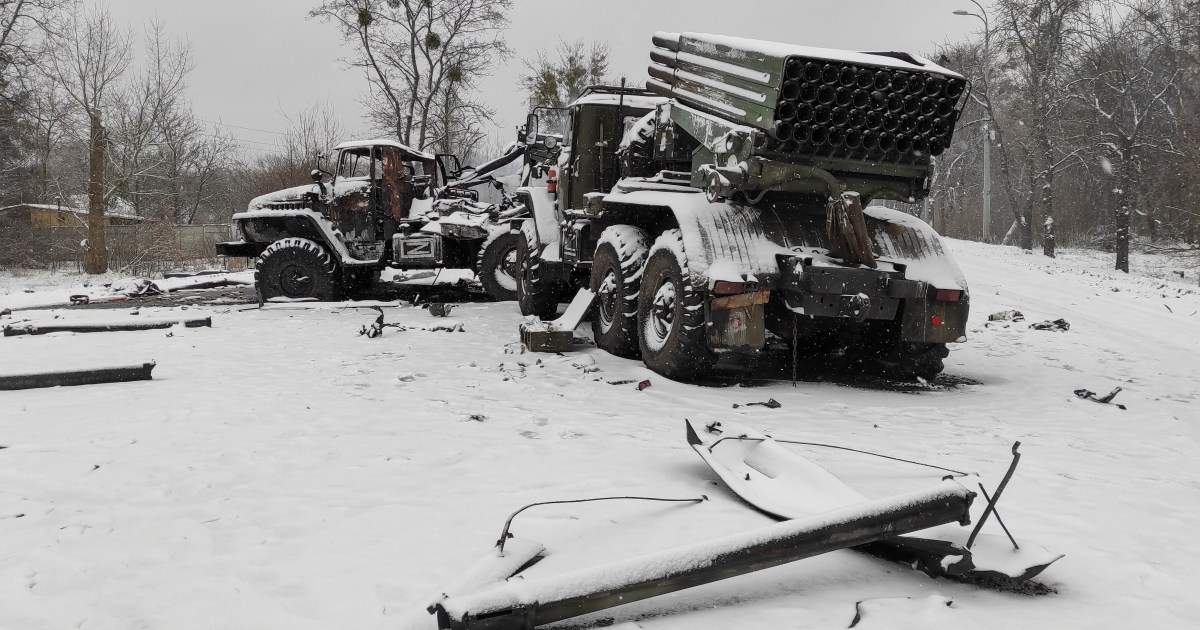Russian forces' control of Ukraine's Chernobyl nuclear plant has raised major concerns about the security of Europe and the safety of the country's four other nuclear power plants, French newspaper La Croix reported.
The newspaper said - in a report by writer Pierre Sotroy - that this control was confirmed a few hours after the appearance of initial reports of clashes between Russian and Ukrainian forces near the waste depot of this station, which is the site of the most serious nuclear accident in history in 1986.
It is rumored that the control of the site is due to the Russians' desire to use it as an area to deploy artillery units to strike the capital, Kiev, while others suggest that Moscow is seeking to seize nuclear waste present there with the aim of making "dirty bombs", a mixture of conventional explosives and radioactive materials intended to Spreading radioactive dust over a wide area, knowing that Russia lacks such waste on its territory.
The writer asserts that the Russian forces most likely captured the station because of its geographical location, as it is about 100 kilometers north of Kiev, not far from the Belarusian border.
In light of this, American General Ben Hodges indicated - in an interview with "NBC" - that "if Russian forces attacked Kiev from the north, then Chernobyl is on its way."
He adds that the shock of the explosion of reactor No. 4 in Chernobyl, on April 26, 1986, is still present in the minds of Europeans, and was followed by the evacuation of about 350,000 people living within a 30-kilometre radius, while abnormally high levels of radiation were measured in Almost the entire continent.
According to Mikhailo Podolak, an adviser to the Ukrainian president, the hypothesis that the fighting could damage the great "arc" erected in 2018 that was supposed to confine radiation would constitute "one of the most serious threats to Europe."
For its part, the International Atomic Energy Agency issued a statement expressing its grave concern about this potential danger, and called on the conflicting parties to exercise the utmost restraint "to avoid any action that would endanger the country's nuclear sites."
The Chernobyl plant - the newspaper adds - is not the only topic on the minds of nuclear security specialists, and it may not be the most worrying matter.
"Chernobyl lies within a large exclusion zone, and its uninhabited surroundings would mitigate the consequences of a second nuclear accident," notes James Acton, a nuclear security expert at the Carnegie Endowment for Peace.
Instead, this physicist is more interested in the four other Ukrainian nuclear power plants that, unlike Chernobyl, are still operating and providing more than half of the country's electricity: two in the west of the country far from the fighting, and a third and fourth in the south and southeast in the Zaporizhia regions. And Mykolaiv, the most vulnerable.
The newspaper notes that it is unlikely that any of the parties to the conflict have an interest in another nuclear disaster in Ukraine, but nonetheless its nuclear plants may be affected by mistake.
Petro Kotin, chief executive of the Ukrainian company Energo Atom, which operates these plants, says these facilities are designed to withstand plane crashes, but artillery munitions and projectiles are often designed to penetrate concrete.
Possible leak
Expert James Acton is particularly concerned about possible leaks from spent nuclear fuel coolers;
The lack of cooling can then cause the fuel to melt and release very strong radioactivity.
Acton acknowledges that the probability of an accident of this nature is low, but stresses that its potential severity requires "extraordinary measures" by the Russian authorities to prevent it.
In addition to the risk of a direct hit, the assumption that fighting prevents plant workers from going to sites for maintenance is an additional risk factor.
The writer notes that the press releases of Energoatom are reassuring.
It confirms that the four Ukrainian nuclear power plants are operating without problems.
On the other hand, the Kiev authorities reported yesterday, Friday, unusually high rates of radioactivity in the Chernobyl region, and Ukrainian experts confirm that this is due to the dust raised by the movements of troops and armored vehicles.

